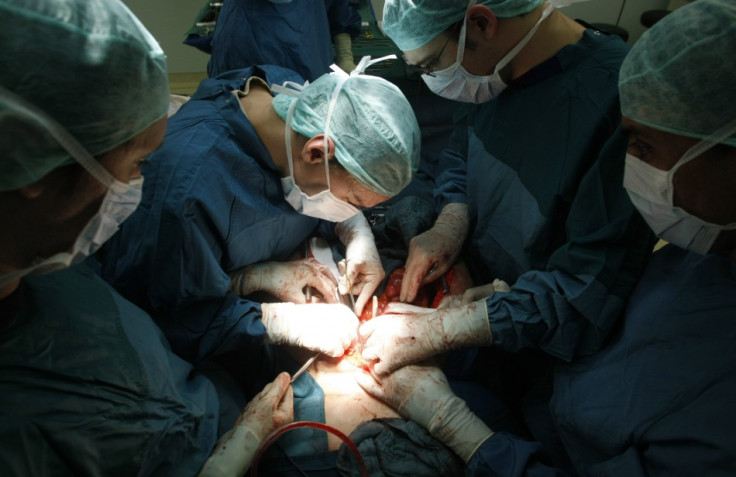Human Liver Created From Stem Cells in World First for Japanese Scientists [VIDEO]

Japanese scientists have grown a fully functional human liver from stem cells for the first time.
The researchers from Yokohama City University created the organ by transplanting 'liver buds' from human stem cells to restore liver function in mice.
Published in the journal Nature, Takanori Takebe and Hideki Taniguchi showed how they stopped mice with liver failure from dying by transplanting the stem cell-grown structures into them.
At present, there is a huge demand for human livers for transplants. In the US last year, almost 3,000 people died waiting for a liver while 5,800 transplants took place.
Embryonic stem cells were discovered in 1981 but scientists have hitherto been unable to generate a human organ because of the complex interactions between cells and tissues as they develop.
However, the Yokohama City scientists challenged this belief by focusing on the earliest stage of organ creation# - the interactions during 'organ bud' development.
There are two main types of stem cells: those that are harvested from embryos, and reprogrammed induced pluripotent stem cells (iPSCs) which are taken from skin and blood.
The researchers used the latter type to make three different cell types that normally combine in the formation of a human liver. They fused them together and found the cells began to grow to form 3D structures called 'liver buds'.
When these were transported into the mice, the liver buds matured and connected with the mouse's blood vessels, and began performing many of the functions of mature human liver cells.
Enormous therapeutic potential
The researchers said: "To our knowledge, we firstly demonstrated... the generation of a functional human organ from pluripotent stem cells.
"Manipulation of iPSCs holds great promise for regenerative medicine. However, clinical trials of cell transplantation, that is a current main target of the stem cell-based approach, have presented unsatisfactory results.
"Our study demonstrates a proof-of-concept that organ bud transplantation offers an alternative approach resulting in the generation of a 3D, vascularized organ.
"These results highlight the enormous therapeutic potential using in vitro grown organ bud transplantation for treating organ failure."
Valerie Gouon-Evans, from the Mount Sinai Hospital in New York, told Nature the study was "a very novel thing", but added that the mice will need to be observed for many months to see if the cells degenerate or form tumours.
Kenneth Zaret, from the University of Pennsylvania, however, praised the study: "It's a great day for developmental biology. By reconstituting cell interactions that we know are important for natural liver progression, they get what appears to be robust, mature tissue."
© Copyright IBTimes 2024. All rights reserved.






